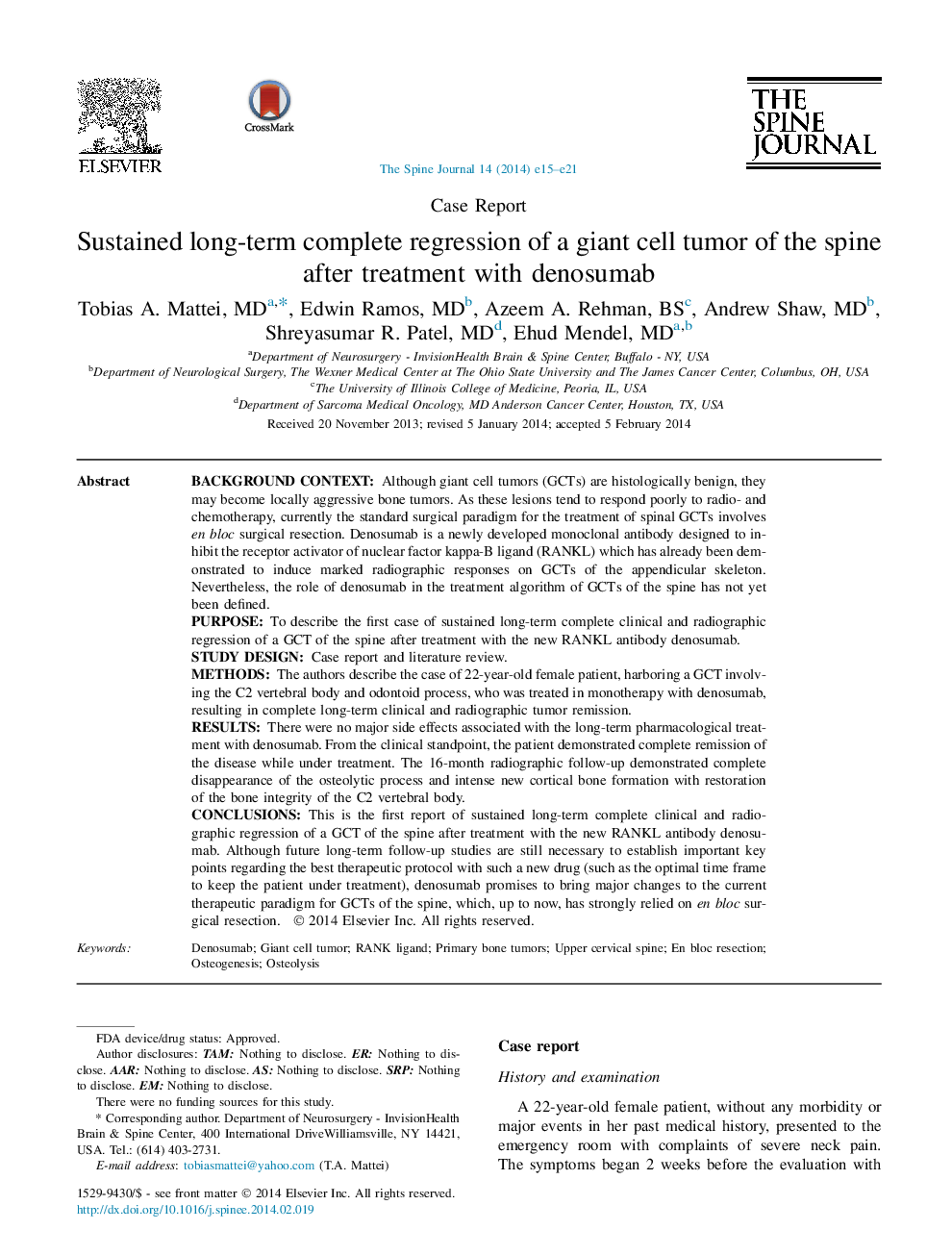| کد مقاله | کد نشریه | سال انتشار | مقاله انگلیسی | نسخه تمام متن |
|---|---|---|---|---|
| 6212441 | 1268577 | 2014 | 7 صفحه PDF | دانلود رایگان |

Background contextAlthough giant cell tumors (GCTs) are histologically benign, they may become locally aggressive bone tumors. As these lesions tend to respond poorly to radio- and chemotherapy, currently the standard surgical paradigm for the treatment of spinal GCTs involves en bloc surgical resection. Denosumab is a newly developed monoclonal antibody designed to inhibit the receptor activator of nuclear factor kappa-B ligand (RANKL) which has already been demonstrated to induce marked radiographic responses on GCTs of the appendicular skeleton. Nevertheless, the role of denosumab in the treatment algorithm of GCTs of the spine has not yet been defined.PurposeTo describe the first case of sustained long-term complete clinical and radiographic regression of a GCT of the spine after treatment with the new RANKL antibody denosumab.Study designCase report and literature review.MethodsThe authors describe the case of 22-year-old female patient, harboring a GCT involving the C2 vertebral body and odontoid process, who was treated in monotherapy with denosumab, resulting in complete long-term clinical and radiographic tumor remission.ResultsThere were no major side effects associated with the long-term pharmacological treatment with denosumab. From the clinical standpoint, the patient demonstrated complete remission of the disease while under treatment. The 16-month radiographic follow-up demonstrated complete disappearance of the osteolytic process and intense new cortical bone formation with restoration of the bone integrity of the C2 vertebral body.ConclusionsThis is the first report of sustained long-term complete clinical and radiographic regression of a GCT of the spine after treatment with the new RANKL antibody denosumab. Although future long-term follow-up studies are still necessary to establish important key points regarding the best therapeutic protocol with such a new drug (such as the optimal time frame to keep the patient under treatment), denosumab promises to bring major changes to the current therapeutic paradigm for GCTs of the spine, which, up to now, has strongly relied on en bloc surgical resection.
Journal: The Spine Journal - Volume 14, Issue 7, 1 July 2014, Pages e15-e21